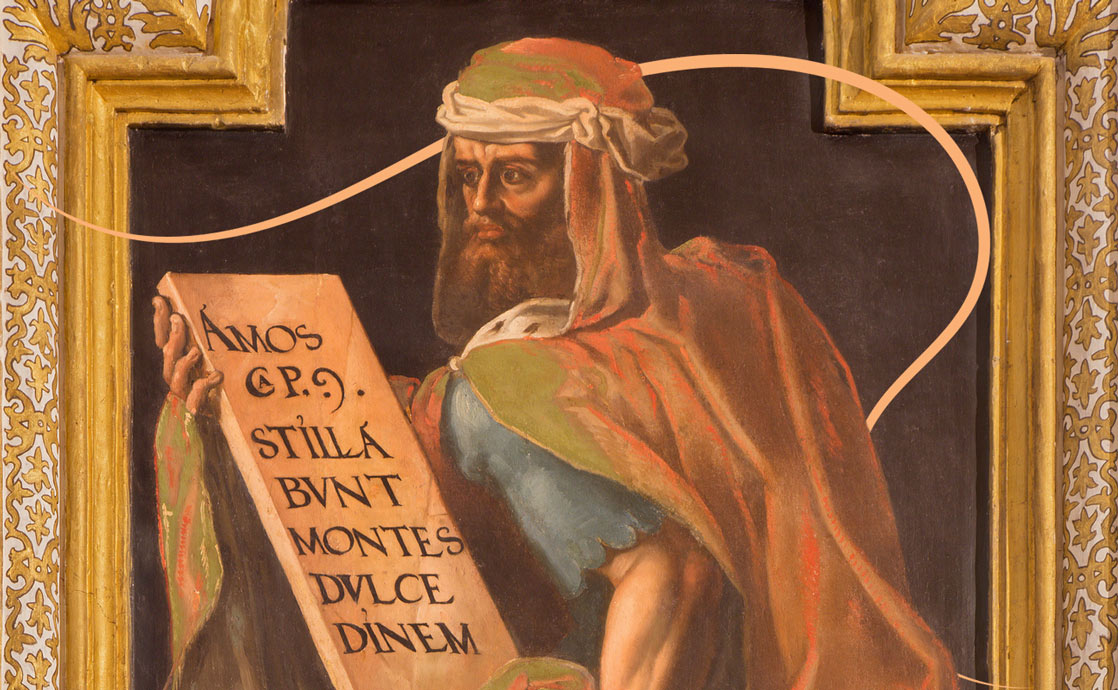Throughout history, figures of moral fortitude have emerged, galvanizing societal consciousness and advocating for equity and justice. Among these luminaries stands the Prophet Amos, a transcendent voice whose teachings resonate within the Bahá’í faith and beyond. Amos, a prophet from ancient Israel, is celebrated not merely for his prophecies but for his unwavering commitment to social justice, an ethos that remains profoundly relevant today.
The prophetic legacy of Amos, often referred to as the “social justice warrior,” encapsulates a fundamental component of the human experience—our perennial quest for justice and moral rectitude. The Bahá’í teachings emphasize the transformative power of justice as a universal principle. They illuminate the imperative of acknowledging and confronting systemic inequities that permeate societal structures. In this context, examining the life and teachings of Amos provides a dual opportunity: to explore the depth of his message and to reflect on its significance for contemporary society.
Amos was not a conventional prophet; rather, he emerged from humble beginnings as a shepherd and a keeper of sycamore trees. This socio-economic background is pivotal, as it underscores the prophetic tradition—a channeling of divine insight through individuals without societal privilege. His experiences fostered a unique perspective on the injustices rampant in his time. As he traversed the landscapes of Israel, he witnessed the plight of the marginalized, the disenfranchised, and the economically fragile—elements of society easily overlooked by those in power. His voice serves as a clarion call for the pursuit of justice, urging a collective consciousness towards ethical responsibility.
Central to the teachings of Amos is the denunciation of social and economic disparities. He articulates a profound critique of the socio-political elite, denouncing the exploitation of the poor and the corrupt practices that undermine the very fabric of community. His proclamation, “Let justice roll down like waters, and righteousness like a mighty stream,” epitomizes a divine mandate for justice that transcends mere rhetoric. It demands action, urging followers to embody these principles through their societal interactions. In this light, justice emerges as an active force, wherein the struggle against oppression becomes a spiritual endeavor.
This exploration into Amos’s teachings illuminates a salient paradox prevalent in many religious traditions: the dichotomy between spiritual pursuits and social activism. Amos epitomizes the integration of both. He distills a spiritual paradigm centered around unwavering ethical principles, urging individuals to engage actively in the pursuit of justice. This approach resonates deeply within the Bahá’í framework, which calls for the synthesis of spirituality and material progress. Justice, as is articulated in Bahá’í teachings, is not merely a legalistic construct but a spiritual imperative that fosters unity and harmony within the human community.
Furthermore, Amos’s message transcends geographical and temporal boundaries. His warnings against complacency and indifference are echoes that resonate through history, urging each generation to interrogate its ethical responsibilities. The Bahá’í teachings reinforce this universal application of justice, emphasizing that the principles articulated by Amos serve as a guiding compass not only for individual conduct but also for collective societal norms. This yields an essential inquiry into how contemporary society interprets and implements the timeless wisdom of Amos in addressing modern injustices.
In contemporary discourse, issues such as systemic racism, economic inequality, and environmental degradation necessitate urgent attention and action. Bahá’í teachings, informed by the prophetic insights of figures like Amos, advocate for a holistic approach to such challenges. The emphasis on justice extends beyond mere charity; it necessitates structural change and a re-examination of the underlying systems that perpetuate inequity. The challenge lies in mobilizing collective efforts towards sustainable solutions that highlight the interconnectedness of humanity. Importantly, the principles of equity, fair treatment, and moral accountability resonate throughout this dialogue, providing a critical framework for positive social change.
Moreover, the teachings of Amos challenge individuals to self-reflect on their roles and responsibilities within their communities. Each person, as an agent of change, holds the potential to effectuate justice through conscientious living and ethical travel toward communal integrity. This ethos cultivates a profound awareness of how personal actions impact societal structures, fostering a commitment to social responsibility that aligns with the philosophies espoused by Amos.
A pivotal aspect of engaging with the teachings of Amos is recognizing the emotional and psychological dimensions of injustice. The impact of systemic inequities transcends the material realm, influencing societal mental health, cohesiveness, and overall well-being. The Bahá’í teachings emphasize the necessity of nurturing a spiritually vibrant community, where justice serves as a foundation for peace, healing, and unity. Thus, advocating for justice is not solely an external pursuit; it is also an internal journey, wherein individuals confront their biases and assumptions, cultivating empathy and understanding for the experiences of others.
In conclusion, the life and teachings of the Prophet Amos invite us to embrace the mantle of social justice. His powerful messages resonate with a contemporary need for ethical engagement and spiritual commitment to justice in our society. The integration of these principles within the Bahá’í framework invites us to reflect on our collective responsibility and to strive towards a world characterized by equality, compassion, and mutual respect. Committing to this journey as spiritual advocates for justice is not merely a quest but a profound obligation inherent in our shared humanity.
